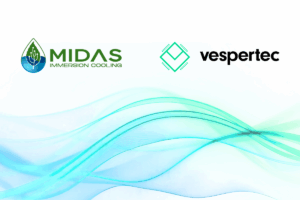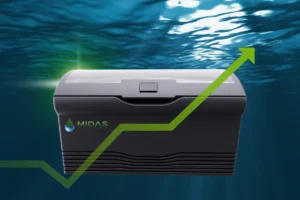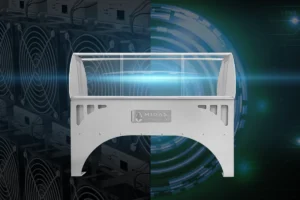In the ever-evolving landscape of data centers, creating more efficient cooling solutions that can also extend the lifespan of hardware components is a remarkable combination. Traditional air cooling systems have long been the norm, but they often subject sensitive hardware to temperature fluctuations and stress that can shorten their operational lifespan. Enter Midas Immersion Cooling, a game-changing technology that optimizes cooling efficiency and significantly improves the longevity of your critical hardware components. This blog will explore how Midas Immersion Cooling achieves this impressive feat.
The Challenge of Heat Stress
High temperatures can wreak havoc on the delicate components of servers and other IT equipment. Heat stress, which results from prolonged exposure to elevated temperatures, can lead to a cascade of problems, including:
- Reduced Performance: As temperatures rise, hardware components can throttle their performance to prevent overheating, leading to slower operations.
- Hardware Failures: Excessive heat can cause electronic components to fail prematurely, resulting in costly downtime and replacements.
- Increased Energy Consumption: Overheating hardware consumes more power to maintain its operational temperature, contributing to higher energy bills and carbon emissions.
- Shortened Lifespan: Reduced performance, hardware failures, and increased energy consumption can significantly shorten the lifespan of servers and IT equipment.
Midas Immersion Cooling Solution
Midas Immersion Cooling addresses these challenges head-on, offering a range of benefits that collectively contribute to improved hardware longevity:
Precise Temperature Control
Midas Immersion Cooling’s direct contact with hardware components ensures precise temperature control. Unlike traditional air cooling, which relies on airflow and can lead to temperature fluctuations, immersion cooling maintains a consistent and controlled operating temperature. This eliminates the stress associated with thermal cycling.
- Elimination of Hotspots
Hotspots, localized areas of elevated temperatures within a server or rack, can be detrimental to hardware. Immersion cooling disperses heat uniformly, preventing hotspots and reducing the risk of component damage.
- Reduced Fan Stress
Traditional air cooling relies on fans to dissipate heat. These fans are the number one failure component on a server and fail unexpectedly, leading to overheating. With immersion cooling, there are no server fans, eliminating this failure point.
- Minimal Oxidation and Corrosion
Exposure to air can lead to oxidation and corrosion of hardware components, further shortening their lifespan. Immersing servers prevents contact with the atmosphere, minimizing these issues.
- Energy Savings
By operating at a lower and more stable temperature, hardware components experience less stress and consume less power. This not only reduces energy bills but also prolongs the lifespan of the hardware.
The Bottom Line: Hardware That Lasts
In conclusion, Midas Immersion Cooling does more than just improve cooling effectiveness. It also guarantees that your essential hardware components will last longer. By eliminating the strain of temperature changes, hotspots, and fan breakdowns while decreasing oxidation and corrosion, Midas Immersion Cooling prolongs the operational life of your servers and IT equipment. This, in turn, reduces the overall cost of ownership and contributes to a more environmentally friendly data center.
As data centers evolve and demands increase, choosing a cooling solution that enhances hardware longevity is paramount. Midas Immersion Cooling stands at the forefront of this transformation, offering improved cooling efficiency and hardware that stands the test of time. Embrace the future of data center cooling with Midas and ensure your hardware investments deliver lasting value.
Ready to take your data center’s cooling to the next level with Midas Immersion Cooling? Contact us today to learn more about how our state-of-the-art technology can benefit your operations and contribute to a more sustainable future.





